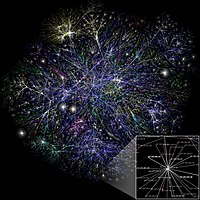
An active-learning probabilistic neural network for feasibility classification of constrained engineering optimization problems
Sign Up to like & getrecommendations! Published in 2021 at "Engineering with Computers"
DOI: 10.1007/s00366-021-01441-4
Abstract: Constrained optimization problems (COPs) with multiple computational expensive constraints are commonly encountered in simulation-based engineering designs. During the optimization process, the feasibility analysis of the intermediate solutions depends on the computational simulations will be computationally… read more here.
Keywords: engineering; classification; active learning; optimization ... See more keywords

An improved elephant herding optimization for global optimization problems
Sign Up to like & getrecommendations! Published in 2021 at "Engineering with Computers"
DOI: 10.1007/s00366-021-01471-y
Abstract: This study proposes a modified Elephant Herding Optimization algorithm to enhance the capability of a classical algorithm for convalescent convergence rate and precision to solve global optimization problems. The proposed Improved Elephant Herding Optimization (IEHO)… read more here.
Keywords: optimization; improved elephant; optimization problems; global optimization ... See more keywords

An improved Chaotic Harris Hawks Optimizer for solving numerical and engineering optimization problems
Sign Up to like & getrecommendations! Published in 2021 at "Engineering with Computers"
DOI: 10.1007/s00366-021-01487-4
Abstract: Harris Hawk’s Optimizer (HHO) is a recently developed meta-heuristics search algorithm with inherent capability to explore global minima and maxima. However, the local search of the basic HHO algorithm is sluggish and has slow convergence… read more here.
Keywords: improved chaotic; optimization problems; engineering; chaotic harris ... See more keywords

Objective reduction for many-objective optimization problems using objective subspace extraction
Sign Up to like & getrecommendations! Published in 2018 at "Soft Computing"
DOI: 10.1007/s00500-017-2498-6
Abstract: Multi-objective evolutionary algorithms (MOEAs) have shown their effectiveness in exploring a well converged and diversified approximation set for multi-objective optimization problems (MOPs) with 2 and 3 objectives. However, most of them perform poorly when tackling… read more here.
Keywords: many objective; objective optimization; optimization; optimization problems ... See more keywords

An efficient neural network for solving convex optimization problems with a nonlinear complementarity problem function
Sign Up to like & getrecommendations! Published in 2020 at "Soft Computing"
DOI: 10.1007/s00500-019-04189-8
Abstract: In this paper, we present a one-layer recurrent neural network (NN) for solving convex optimization problems by using the Mangasarian and Solodov (MS) implicit Lagrangian function. In this paper by using Krush–Kuhn–Tucker conditions and MS… read more here.
Keywords: convex optimization; neural network; problem; optimization problems ... See more keywords

A reformative teaching–learning-based optimization algorithm for solving numerical and engineering design optimization problems
Sign Up to like & getrecommendations! Published in 2020 at "Soft Computing"
DOI: 10.1007/s00500-020-04918-4
Abstract: Teaching–learning-based optimization (TLBO) algorithm, which simulates the process of teaching–learning in the classroom, has been studied by many researchers, and a number of experiments have shown that it has great performance in solving optimization problems.… read more here.
Keywords: based optimization; teaching learning; optimization; engineering design ... See more keywords

Volcano eruption algorithm for solving optimization problems
Sign Up to like & getrecommendations! Published in 2020 at "Neural Computing and Applications"
DOI: 10.1007/s00521-020-05124-x
Abstract: Meta-heuristic algorithms have been proposed to solve several optimization problems in different research areas due to their unique attractive features. Traditionally, heuristic approaches are designed separately for discrete and continuous problems. This paper leverages the… read more here.
Keywords: optimization problems; algorithm solving; volcano eruption; optimization ... See more keywords

Kernel Technology to Solve Discrete Optimization Problems
Sign Up to like & getrecommendations! Published in 2017 at "Cybernetics and Systems Analysis"
DOI: 10.1007/s10559-017-9990-y
Abstract: The kernel technology is proposed to solve discrete optimization problems. It forms solution kernel and allows efficient stochastic perturbations of this solution in iterative schemes. Comparative analysis of the two versions of the new algorithm… read more here.
Keywords: kernel technology; discrete optimization; technology; solve discrete ... See more keywords

Fragmentary Structures in Discrete Optimization Problems
Sign Up to like & getrecommendations! Published in 2017 at "Cybernetics and Systems Analysis"
DOI: 10.1007/s10559-017-9995-6
Abstract: The paper considers a combinatorial object (a fragmentary structure) and investigates the properties of this object. It is shown that a number of discrete optimization problems can be considered as optimization problems on a fragmentary… read more here.
Keywords: fragmentary structure; fragmentary structures; discrete optimization; problems fragmentary ... See more keywords

A Generalized Time Iteration Method for Solving Dynamic Optimization Problems with Occasionally Binding Constraints
Sign Up to like & getrecommendations! Published in 2020 at "Computational Economics"
DOI: 10.1007/s10614-020-10037-x
Abstract: We study a generalized version of Coleman (1990)’s time iteration method (GTI) for solving dynamic optimization problems. Our benchmark framework is an irreversible investment model with labor-leisure choice. The GTI algorithm is simple to implement… read more here.
Keywords: solving dynamic; dynamic optimization; iteration method; time iteration ... See more keywords

The reduction of computation times of upper and lower tolerances for selected combinatorial optimization problems
Sign Up to like & getrecommendations! Published in 2017 at "Journal of Global Optimization"
DOI: 10.1007/s10898-016-0486-5
Abstract: The tolerance of an element of a combinatorial optimization problem with respect to its optimal solution is the maximum change of the cost of the element while preserving the optimality of the given optimal solution… read more here.
Keywords: computation; combinatorial optimization; optimization; optimization problems ... See more keywords